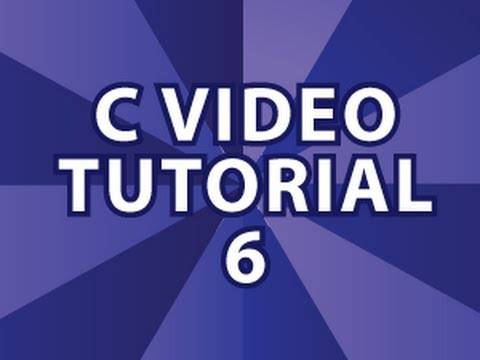[ad_1]
Get the Code Here :
Welcome to part 6 of my C video tutorial. Today I’m going to cover Unions, Enumerated Types, the Designated Initializer, Using unions in Structs, Recursive Structures, Linked Lists and much more.
I’m also going to experiment with a new style that is more interactive and I hope it feels more like a classroom setting. Throughout the tutorial I will constantly insert brain teasers. Hopefully they aren’t distracting. I do this every once in a while to try and improve.

Leave a Reply